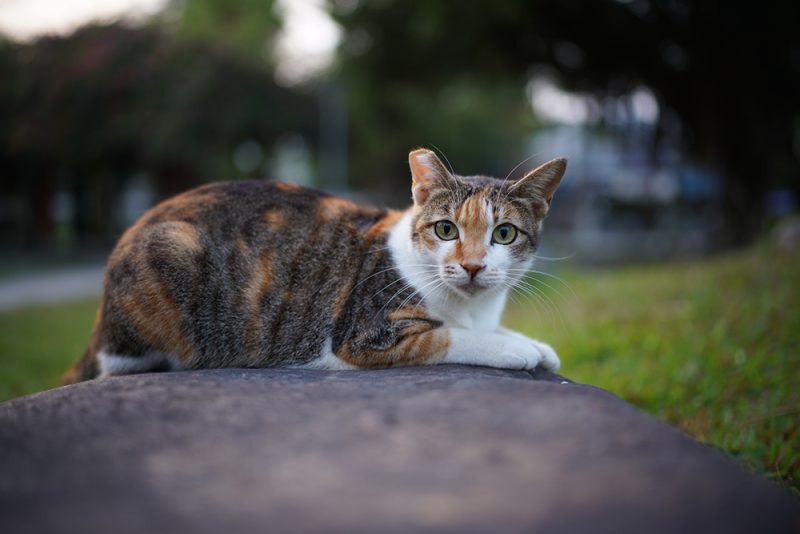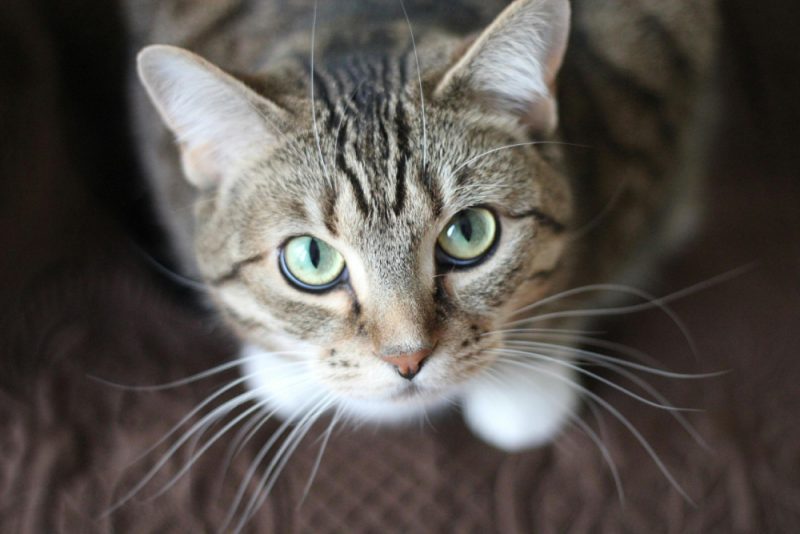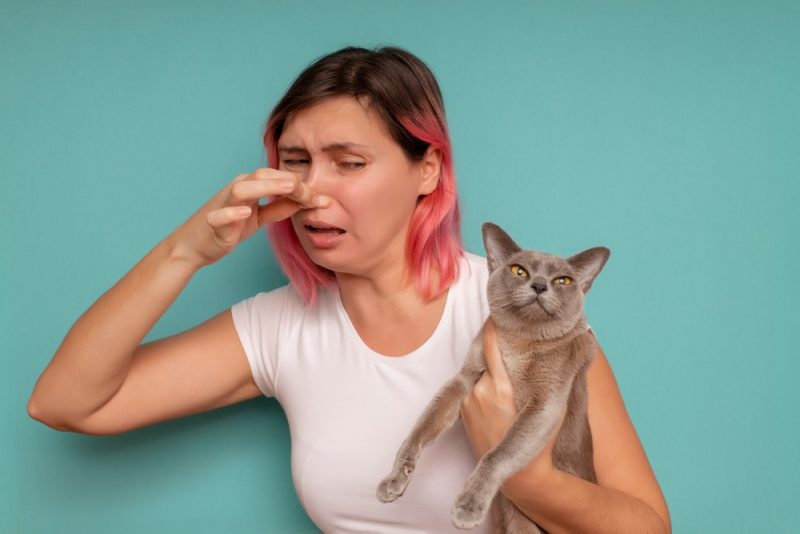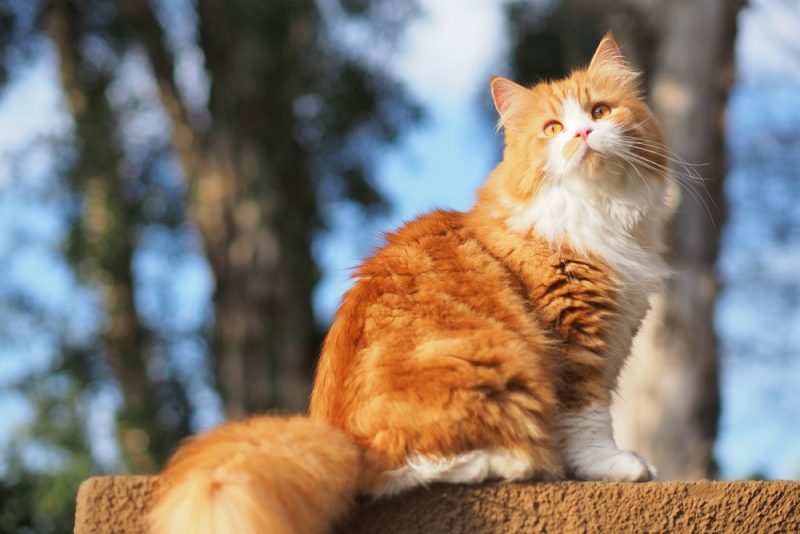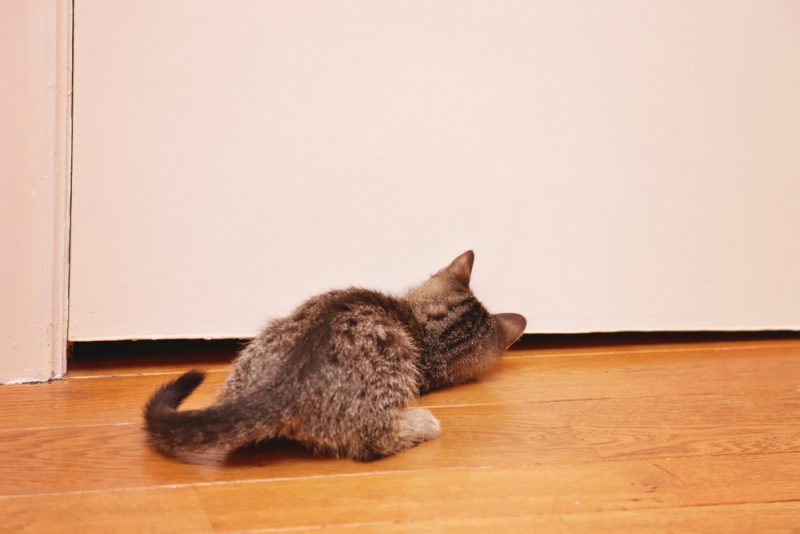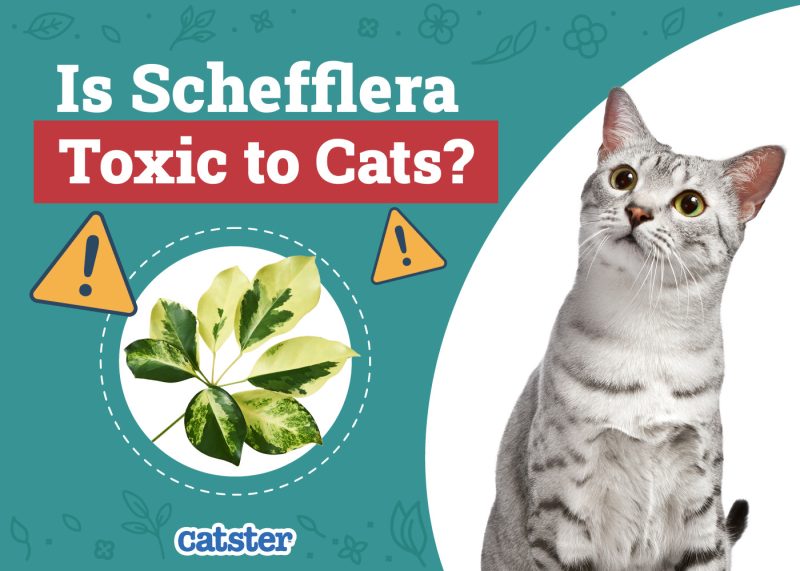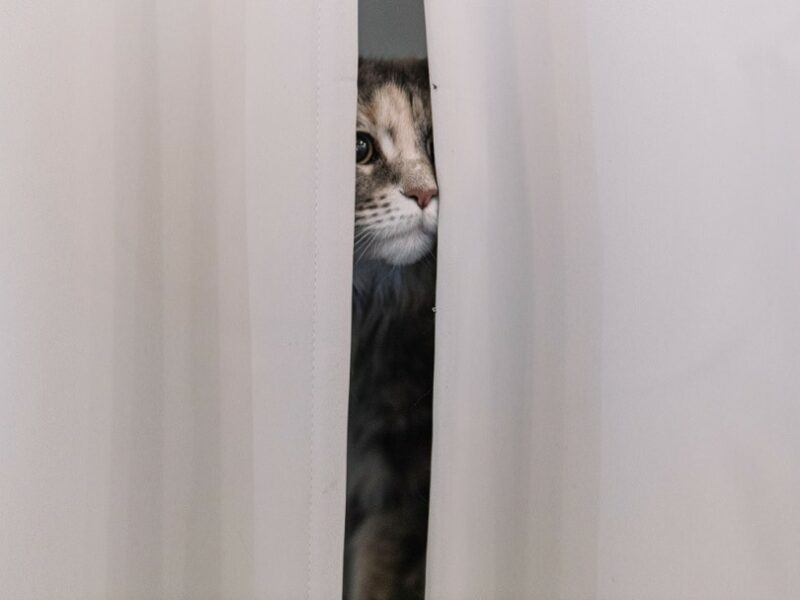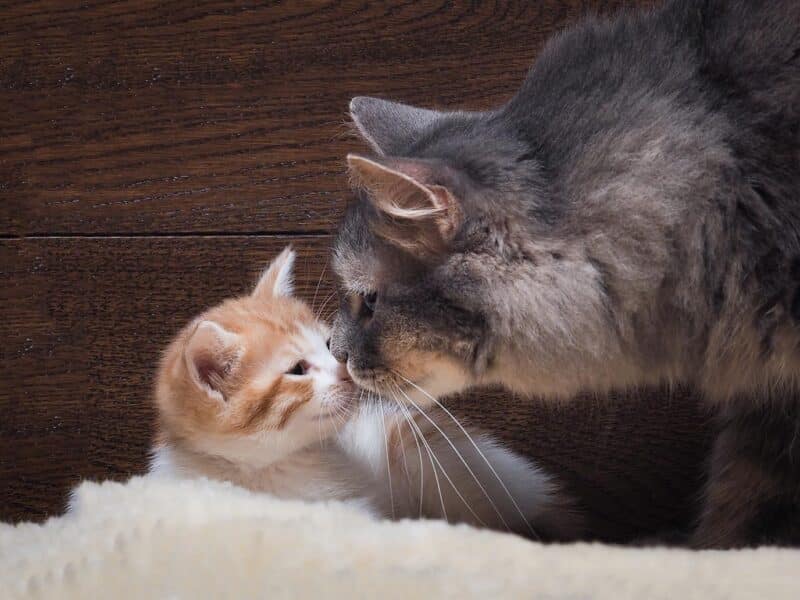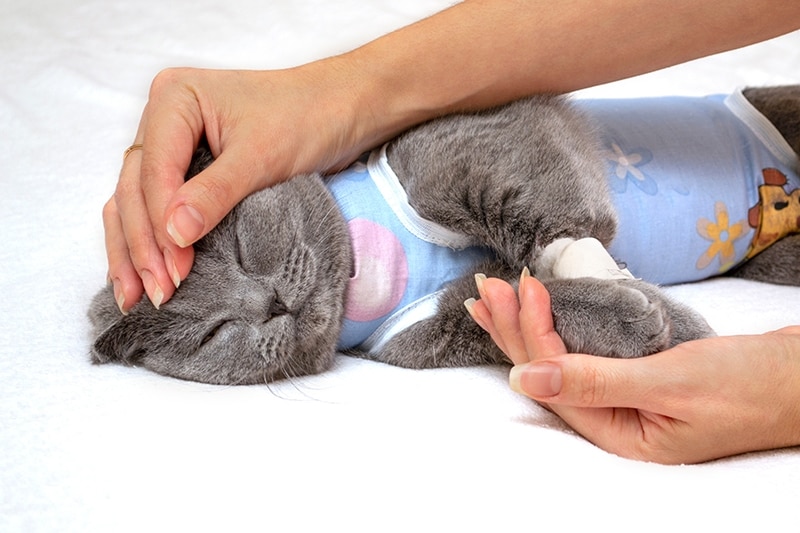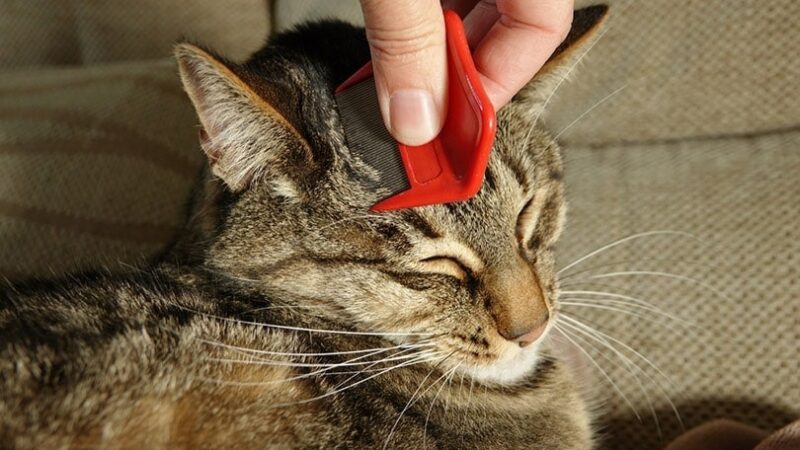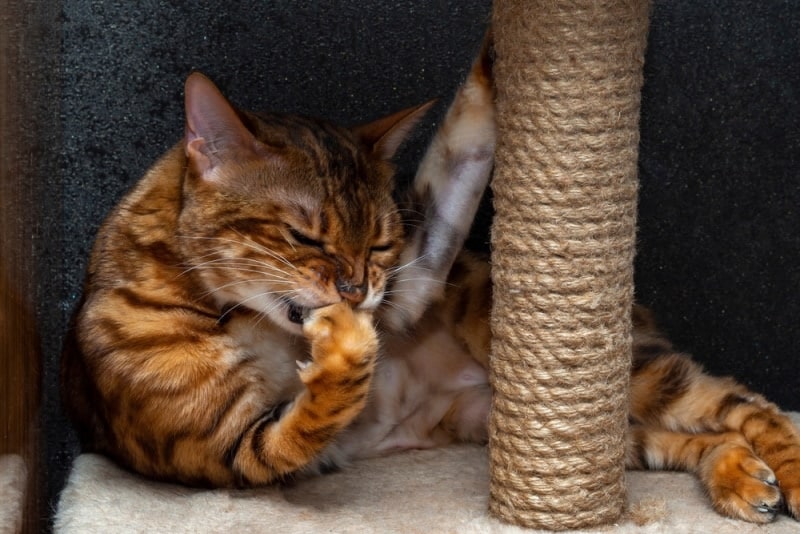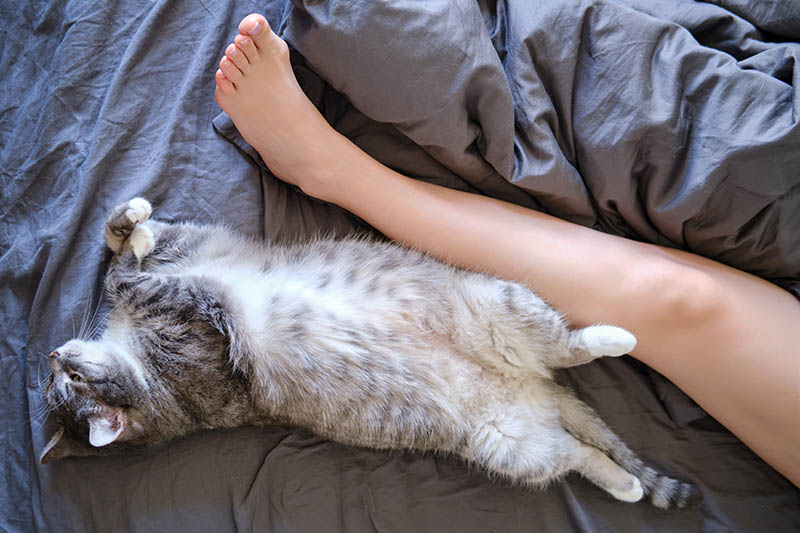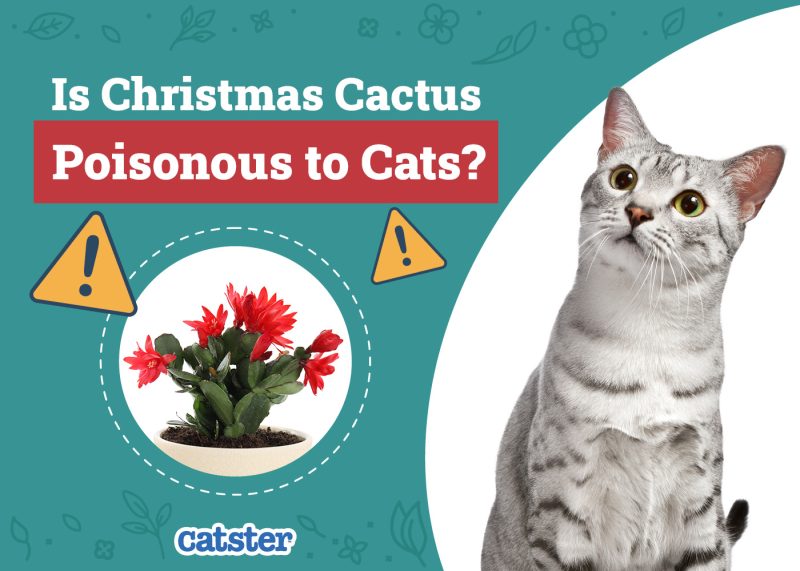In this article
View 4 More +Cats are known for their picky eating habits, but they can sometimes surprise us by nibbling on unexpected treats. One strange item that seems to get many cats’ attention is graham crackers, but are they safe for cats to eat? Fortunately, graham crackers are fine for felines in small amounts, but are not suitable to add to the diet as they are lacking in all the nutrients your little carnivore needs.

What Are Graham Crackers?
Graham crackers were created in the United States in the late 1800s, inspired by preacher Sylvester Graham. He introduced the first graham product that used coarsely ground flour (graham flour) as part of a vegetarian diet. Several companies began mass-producing them and they are still a popular food item today, often sweetened with honey or cinnamon. They are also an ingredient in many desserts, like pie crusts and s’mores.
Graham crackers contain enriched flour, whole grain wheat flour, sugar, canola or soybean oil, preservatives, molasses, honey, baking soda, calcium phosphatase, salt, dextrose, cinnamon, soy lecithin, natural cinnamon flavor and sodium sulfite.


Problems With Graham Crackers
Flour
Graham crackers are primarily coarsely ground wheat flour. While cats can technically digest small amounts of carbohydrates, their digestive systems are not well-suited for processing large quantities of wheat or grains, and eating too much might lead to digestive upset. Graham crackers also lack the essential nutrients that cats need for a balanced diet.
Sugar and Fats
Graham crackers often contain added sugar, fats and oils, which is not suitable for cats. Cats are not even able to experience sweet tastes. Too much sugar or fat over time will lead to weight gain, which puts your feline at risk for diabetes and joint problems.
Honey
Some graham cracker varieties contain honey. While honey is natural, it is still high in sugar and could cause weight gain over time.
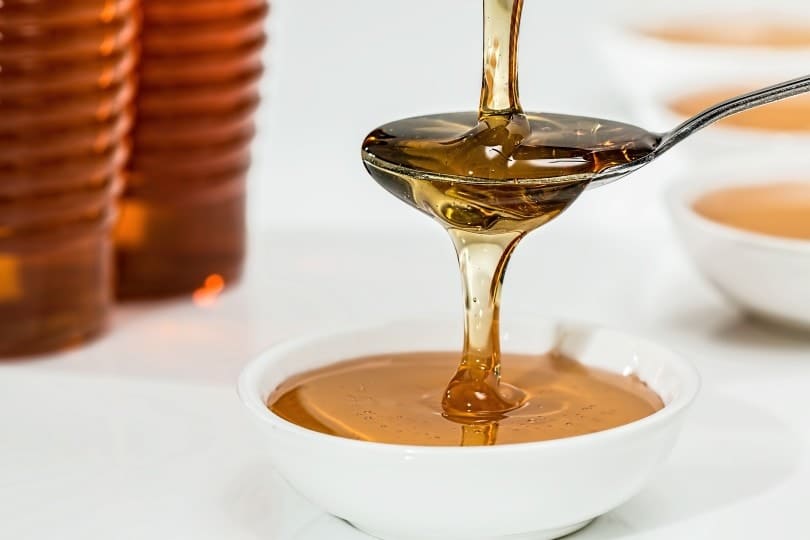
Cinnamon
Cinnamon is a common spice used in graham crackers. While small amounts of cinnamon are generally safe for cats, large quantities can lead to digestive upset, mouth sores or even toxicity. Although ingestion of enough cinnamon to cause a problem is unlikely in cats.
Salt
Some graham crackers may contain added salt, which can harm cats in very large doses. Although again, ingestion of enough to cause a problem is unlikely.
Potential Allergies
Some cats may have allergies or sensitivities to certain ingredients found in graham crackers, such as wheat. Signs of an allergic reaction can include continuous itching, scratching, overgrooming, and biting.
If your pet is showing these signs, we suggest you speak to a vet.
If you need to speak with a vet but can't get to one, head over to PangoVet. It's an online service where you can talk to a vet online and get the advice you need for your pet — all at an affordable price!


Benefits of Feeding Graham Crackers to Cats
Unfortunately, there is no real benefit to feeding graham crackers to your cat, as they don’t contain any meat, which is what cats require in their diets. However, a graham cracker shouldn’t cause any harm if your cat nibbles on a tiny piece you dropped on the floor.
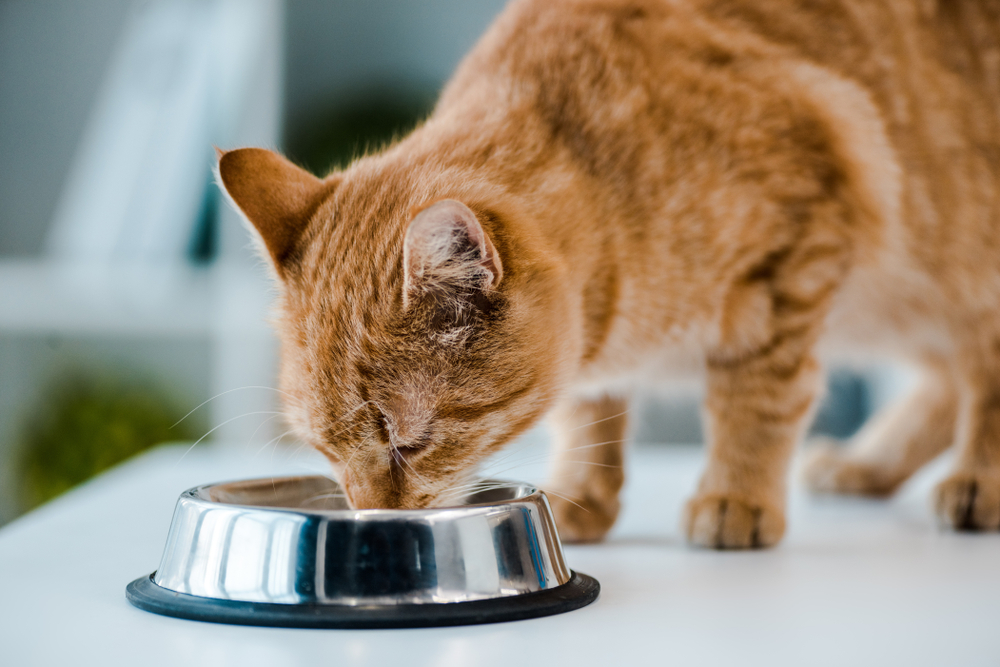

Alternatives to Graham Crackers for Cats
Cat Treats
Commercial cat treats are great options and help meet feline dietary requirements. They come in various flavors and textures, so with a bit of experimentation, you will surely find something that your cat enjoys.
Cooked Meat
Cats love meat, and small amounts of cooked chicken, turkey, or fish can be tasty and safe treats for your furry friend. Boil the meat without spices, let it cool, and cut it into small pieces before serving.
Catnip
Catnip is a natural herb that many cats enjoy. You can sprinkle it on a scratching post or use catnip-infused toys to provide entertainment. It’s also a fragrant, attractive, and easy-to-grow plant that you can keep indoors or outside.
Dental Chews
Dental chews are similar to commercial cat treats but have special ingredients to help cats maintain their oral health. Check out the Veterinary Oral Health Council (VOHC) approved list of dental products.
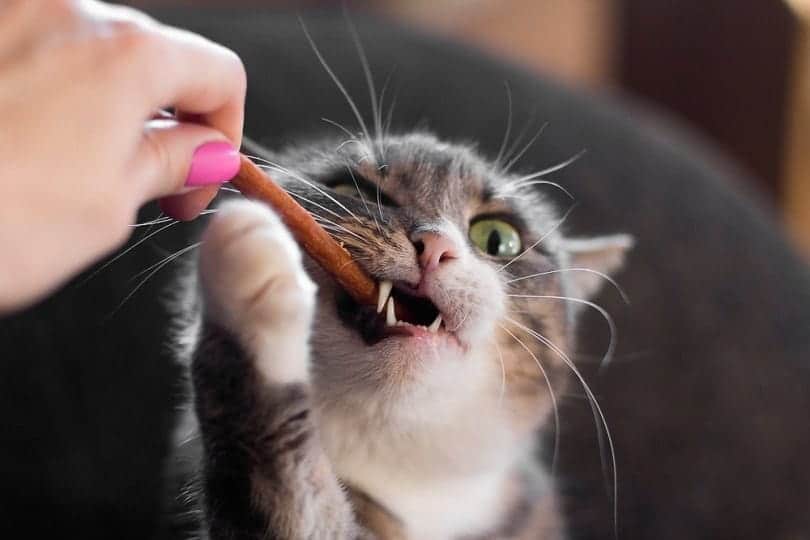

Health Guidelines for Cats
- Schedule annual check-ups with your veterinarian. Regular vet visits can help catch and prevent health issues early.
- Ensure that your cat receives the appropriate vaccinations to protect against common feline diseases.
- Provide balanced, high-quality cat food appropriate for your cat’s age and health, and follow the portion sizes recommended on the package.
- Always provide fresh, clean water. Some cats prefer running water, so a water fountain can help.
- Continuously monitor your cat’s weight and body condition. Obesity is a common issue in cats and can lead to health problems. Consult your vet for weight management strategies if you struggle to keep your cat at an appropriate weight.
- Promote dental health with regular teeth brushing, dental treats, and toys designed for oral hygiene. Always use pet-safe toothpaste, as human toothpaste can contain dangerous ingredients.
- Use the flea-and-tick control measures that your vet recommends, and administer deworming treatments as necessary, as these insects can transmit several harmful diseases to your pet, including Lyme disease and heartworm.
- Keep the litter box clean, and change the litter once or twice a day to keep it hygienic. .
- Provide toys, scratching posts, and treat-dispensing puzzles to keep your cat physically and mentally active. Spend at least 20 minutes daily engaging your cat in activities and games.
- Regularly brush your cat’s coat to prevent matting and reduce shedding. Long-haired breeds may require more frequent grooming and trimming.
- Spaying and neutering can help prevent unwanted litters and reduce certain health and behavior issues.
- Consider microchipping your cat, and have them wear a collar with an ID tag and your contact information.
- Cats can be sensitive to changes in their routine. Minimize stress by providing a stable and comfortable living environment.
- Watch for changes in behavior, appetite, and litter box habits or signs of discomfort, and contact the vet immediately if you notice any.
- Have a plan in case of emergencies. Know the phone number and address of the nearest 24-hour veterinary clinic.

Conclusion
If your cat ate a graham cracker without your approval, they will probably be fine, but it is a good idea to watch them closely for several hours for signs of digestive upset and call the vet if there are any problems. Graham crackers contain no nutritional benefits for cats, and many of the ingredients, like flour and sugar, can be harmful in large amounts. Choosing a more suitable food, like a commercial cat treat or plain cooked meat, is better for your cat.
Featured Image Credit: Brent Hofacker, Shutterstock



